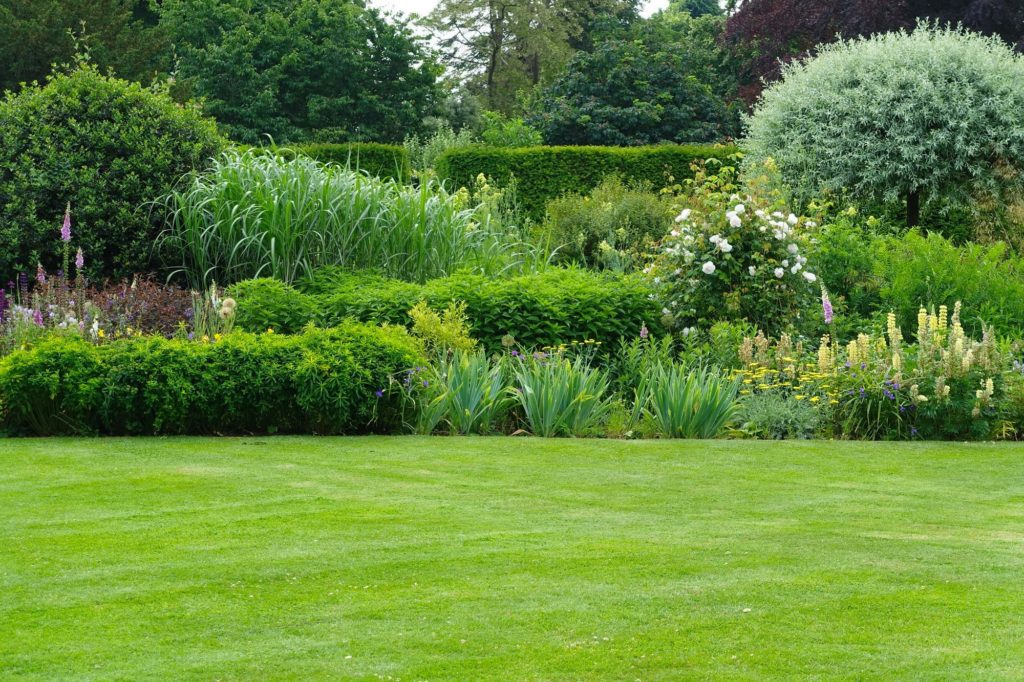Taking care of your garden is an important aspect of housekeeping
Sometimes, in an attempt to grow a good harvest, gardeners supply the soil with chemical fertilizers. This affects the quality of the grown product. In addition, these manipulations have a negative impact on the environment.
Read more eco-friendly tips:
for car owners
for housekeeping
1. DO NOT THROW AWAY THE SEEDS OF A GOOD HARVEST
Gardeners noticed that buying vegetable seeds does not always provide the expected result. First of all, this depends on the fact that vegetable seeds react differently to soil and climate. That is why it is much more correct to use homemade seeds, of which there was a good harvest last year. If the plant quickly adapted to the existing conditions, it is worth saving the seeds and planting them next year.
2. CONSIDER GIVING UP DIGGING
The earth is a living organism in which soil microorganisms and earthworms live. Thanks to their activities, the fruitful qualities of the soil are improved. Digging up the ground, we thereby deprive it of “good” bacteria and insects. As a result, the soil becomes compacted and its fertility decreases.
3. USE MULCH INSTEAD
Mulching is the process of covering the ground with a layer of organic or inorganic residues. The mulching procedure has many beneficial properties. It is used to retain moisture in the ground, prevent overheating of the topsoil, provide a favorable environment for vegetables to grow, and reduce weeds. Eco-friendly assumes to give preference to mulch made from organic materials. It can be made with chopped bark, straw, pine needles, etc.
4. MAKE YOUR OWN COMPOST
Compost is an organic fertilizer for the soil, which saturates it with useful substances. It differs from mulch in that it is introduced into the soil, while the mulch is spread over the ground. Compost can be made from leaves, twigs, grass, weeds, and food waste. Among them, the most often used are the remains of vegetables, fruits, mushrooms, and berries. No special steps are required to turn all this into compost. You just need to put organic waste in one pile, cover it with a special material and allow time for decomposition.
5. COLLECT RAINWATER
For productive growth, it is very important for plants to provide good watering. In case of insufficient water supply, the plant is depleted and dries up. Therefore, not at all saturating the soil with water, is fraught with loss of yield. In order to save freshwater consumption, you can put barrels in the garden. When it rains, they will fill up. The collected water can be used for irrigation.
6. INSTALL THE DRIP IRRIGATION SYSTEM
The principle of the system is a very slow supply of water to the root of the plant. Such a mechanism, first of all, saves time and effort, since it works automatically. An important advantage of drip irrigation is its ability to save water. When using a hose or watering can, watering the garden is very costly and unprofitable.
7. USE SAFE CROP PROTECTION PRODUCTS
In our time, eco-preparations are gaining special popularity on the market. Thanks to their use, you can grow a good harvest without harming the environment. Therefore, give preference to products that have eco-properties and quality certificates.
8. GIVE PREFERENCE TO NATURAL FEEDING
Instead of buying nitrogen fertilizers, you can make a weed infusion or use aerated compost tea. It is also advisable to use wood ash infusions. It is rich in phosphorus and calcium, due to which the stress resistance of most plants increases. In addition, the soil can be fertilized with cattle manure or bird droppings.
9. OBSERVE PREVENTION METHODS THAT PROTECT PLANTS FROM DISEASE
Very often the crop suffers from various diseases. In such cases, gardeners resort to using chemicals in an attempt to cure the plant. But this situation can be prevented by preventive actions. It is worth remembering the following rules:
- Before sowing, vegetable seeds should be disinfected with a solution of aloe juice and water in a ratio of 1/1;
- Do not plant plants too close, otherwise, it will contribute to the appearance of fungal diseases;
- It is not the foliage that needs to be watered, but the base of the plants;
- To strengthen the plant, it is worth adding nettle manure to the soil.
10. DO NOT USE CHEMICALS IN PEST CONTROL
It is worth remembering that it is not necessary to use chemicals in pest control. In most cases, you can save yourself with different tinctures. For example, you can get rid of aphids and mealy worms with an orange tincture. To protect plants from leaf-gnawing caterpillars, aphids, slugs, larvae of flies and beetles, you can use an infusion of red elderberry. Herbivorous mites and other sucking pests can be eliminated with an onion tincture.
11. CHOOSE THE RIGHT LANDING SITE
When the plant lacks water, sunlight, or nutrients, this need is replaced by chemicals. Therefore, when planting seeds, consider the needs of a particular plant. For vegetables that need good lighting, set aside an area in the sun. Choose shaded areas for salads, spinach, and radishes.
12. USE GREEN MANURE PLANTS
Green manure is a plant that can improve the properties of the soil. They require minimal maintenance, are frost-resistant and unpretentious. Green manures enrich the land with nutrients and prevent the emergence of pests and diseases. By using such greenery, chemicals can be avoided and organic vegetables can be grown. Plants with these properties include the following: oats, rye, phacelia, lupine, mustard, and mouse peas.
13. CHOOSE THE RIGHT NEIGHBORHOOD
Some vegetables, which are located side by side, provide more favorable conditions for each other’s growth. Planting carrots and celery next to leeks can help protect against ringworm. It, in turn, creates favorable conditions for the growth of celery and strawberries. And it is recommended to squeeze strawberries next to garlic since it has a positive effect on the process of its ripening. It is advisable to use the following combinations: garlic and tomatoes, garlic and rose, carrots and green onions, cucumbers, and radishes with dill.
14. SAVE ELECTRICITY
If there is a need to illuminate the garden at night, it is worth using solar panels. To install them, you do not need to connect wires and fasteners. You just have to stick a peg with a lamp into the ground and direct the battery towards the light. During a sunny day, it will accumulate energy and transform it into the light. Solar lamps can be turned on manually or set to turn on automatically.
By following the way of eco, you will definitely be able to grow an absolutely pure product. The main thing is to avoid the use of chemicals and pesticides, protect the plant from diseases and pests, give preference to natural fertilizers, and find the right place for each type of plant. By growing vegetables in this way, you can preserve the positive qualities of the soil, without harming the environment and your own health.



